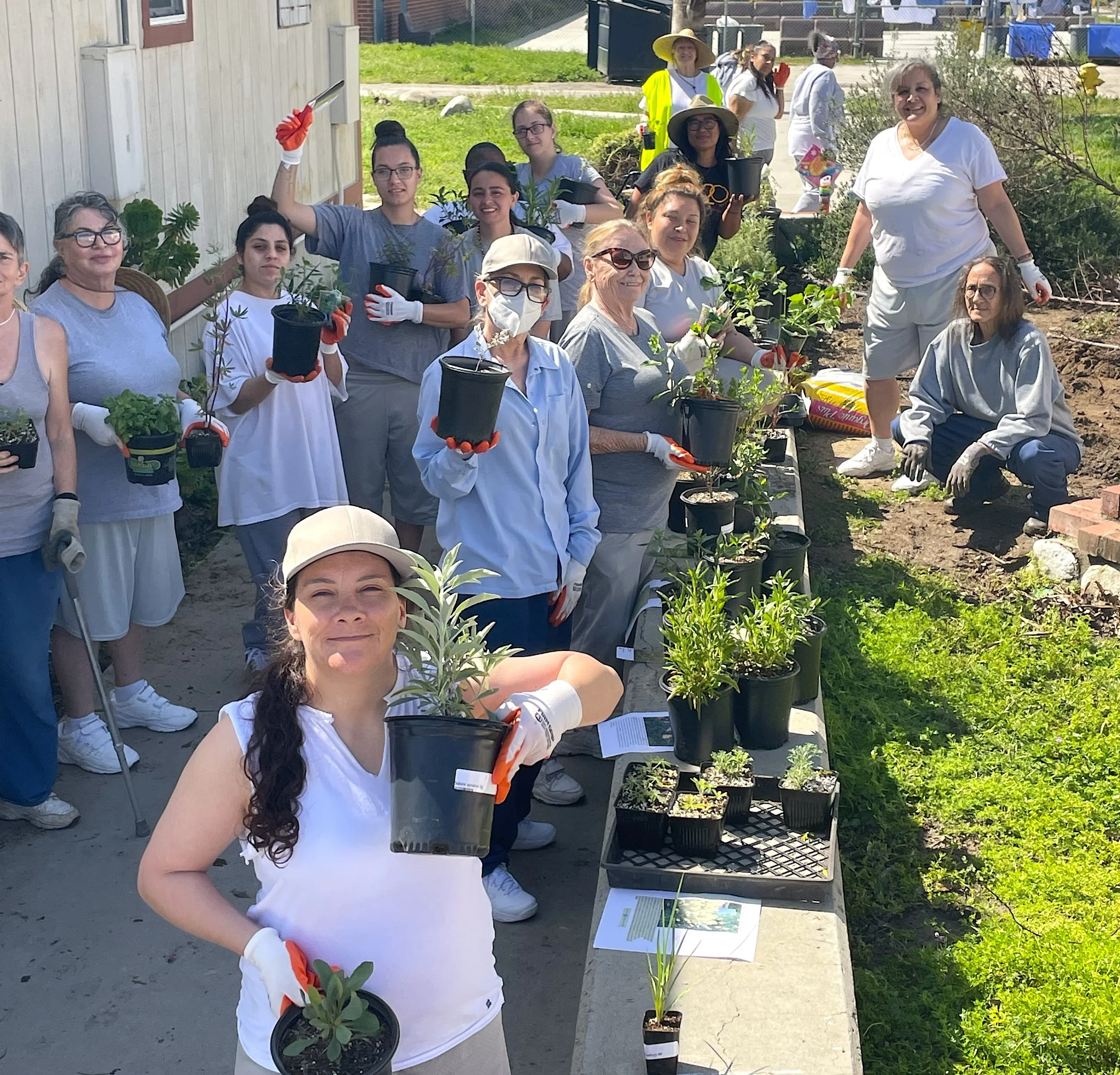How our garden programs support the healing of incarcerated mothers, by Michelle Mondia Program Manager at CIW
Today, I want to share a bit about my experiences working specifically with incarcerated women. I’m the Program Manager of our garden program at the California Institution for Women (CIW) in Chino. There are two women’s prisons in California, and Land Together has prioritized maintaining programs at both facilities.
One of the most traumatic aspects of incarceration for many women is separation from their children. I’ve worked with many mothers who had to leave behind infants at home or had to give birth while incarcerated. In addition to the intense pain of separation for both the parent and the children, I’ve observed time and time again how being stripped of one's identity as a caretaker and nurturer can be devastating and destabilizing.
The United States is home to 4% of the world’s female population, and yet incarcerates 30% of women worldwide. While there are many more men than women incarcerated in the U.S., women are the fastest growing prison population, and they face distinct challenges and have a unique set of needs that typically go unaddressed:
Most incarcerated women have experienced some form of childhood abuse or trauma and/or intimate partner violence.
The large majority of incarcerated women struggle with both physical and mental health challenges.
Two-thirds of incarcerated women in California are imprisoned for nonviolent, non-serious offenses that are poverty, property-theft, or drug-related.
Over 60% of women in California prisons are parents of minor children, and were the primary caregivers before incarceration
Land Together has customized the program at CIW to cultivate safe spaces and healing opportunities specific to the grief and shame that so many incarcerated caregivers experience. My work with the women at CIW has allowed me to understand what plants connect with their inner garden and contribute to their transformation. We bring in the sound of the Tibetan singing bowl to signal that we are about to enter a safe and trusting space during our weekly classroom time. Our garden work days are filled with joy (and hard work) - planting colorful flowers, seeing how the seeds they planted are now ready for harvest, and gathering as a community to marvel at the pollinators who have come to visit our garden. The abundant opportunities participants have to shower their overflowing maternal love and care onto the plants in the garden is a powerful balm for their spirits.
The women will often choose plants for the garden that reflect their familial experiences – an herb their mom or grandpa used to grow and cook with, or a flower that is their child’s favorite color. They talk with excitement about their plans to grow their own gardens when they get out. And they speak with reverence and pride about how they intend to teach their children how to expertly grow and care for plants.
Observing the plants thrive under their care serves as an important boost to their confidence and self-image. In direct contrast to the messages conveyed to them by prison staff or society at large, they learn that they are capable of growth and of cultivating beauty in the world. To support this expansion of what participants believe is possible for them, I regularly incorporate inspirational quotes, meditations, music, and poetry by system-impacted women. I also highlight the contributions of women botanists, artists, healers, and social change leaders as reminders of what is possible and as illustrations of what it looks like to live into one's purpose.

